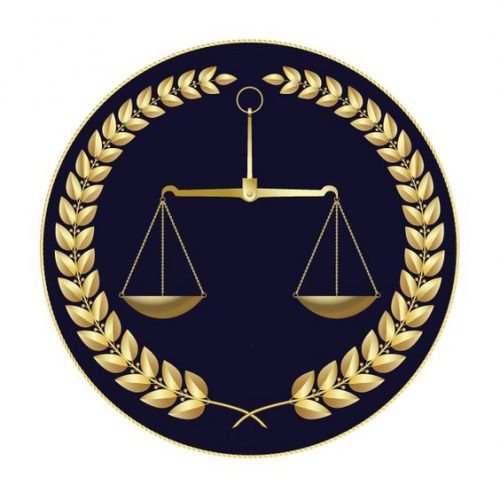Best Water Law Lawyers in Santa Cruz
Share your needs with us, get contacted by law firms.
Free. Takes 2 min.
List of the best lawyers in Santa Cruz, Bolivia
About Water Law in Santa Cruz, Bolivia
Water Law in Santa Cruz, Bolivia governs the rights, use, distribution, and protection of water resources within the department. Since Bolivia recognizes water as a vital public and social resource, specific regulations exist to manage access and sustainability. Water Law covers rivers, lakes, aquifers, and all forms of surface and underground water. Decisions and disputes regarding water often involve local, departmental, and national authorities to ensure fair and efficient management, aligned with both community needs and environmental protection.
Why You May Need a Lawyer
Many individuals, businesses, and communities encounter situations where expertise in Water Law is essential. Common scenarios include:
- Disputes over water rights or allocation between landowners or communities
- Regulatory issues related to using or extracting water from wells, rivers, or lakes
- Concerns about pollution, contamination, or environmental impact from industrial or agricultural activities
- Legal compliance for new constructions or agricultural projects requiring water use permits
- Negotiations about infrastructure for water supply, treatment, or irrigation
- Dealing with governmental agencies or water authorities during investigations or enforcement actions
- Community organization efforts to secure collective water access or defend against water privatization
In these cases, a lawyer helps advocate for your interests, ensures compliance with laws, and assists with documentation and negotiations.
Local Laws Overview
Water management in Santa Cruz follows national legal frameworks, especially Law No. 2029 (Ley de Servicios de Agua Potable y Alcantarillado Sanitario), but also applies local regulations addressing unique challenges in the area. Key aspects include:
- Water is declared a national and public good, with the state as its primary steward
- Allocation of water resources prioritizes essential human needs, agriculture, and ecosystem health
- Permits are required for activities such as large-scale extraction, diversion, or construction affecting water bodies
- Strict rules are in place to prevent pollution and overexploitation of water sources
- Local authorities play an active role in monitoring, permitting, and resolving water conflicts
- Community-managed water systems are recognized and have legal standing in many rural and peri-urban areas
Understanding both these national frameworks and local procedural rules is essential for anyone dealing with water use issues in Santa Cruz.
Frequently Asked Questions
What is considered a water right in Santa Cruz, Bolivia?
A water right is the legal authorization to use a certain portion of water from a public or private source for activities like household, agricultural, or industrial use. Rights must be acquired and registered with local or national authorities.
Can I drill a well on my property?
Drilling a well generally requires a permit from the relevant governmental authority. Environmental and technical assessments are usually necessary to prevent overuse or contamination.
How can I resolve a dispute with a neighbor over water use?
Water disputes can be resolved through negotiation, mediation by local authorities, or, if needed, legal action with the help of a lawyer experienced in Water Law.
Are there restrictions on using river or lake water for irrigation?
Yes. Permits and compliance with both environmental and usage regulations are required. Unauthorized extraction can result in penalties or legal disputes.
What happens if someone pollutes a river or water source?
Individuals or companies causing water pollution face administrative fines and may be ordered to remediate the damage. Severe cases can lead to criminal prosecution.
What is the role of the local government in water management?
Local governments manage water allocation, issue permits, enforce regulations, and often lead monitoring and conflict resolution, working closely with national authorities.
Is it possible to transfer water rights to another person?
Generally, water rights can be transferred, but such actions must be authorized by relevant authorities to ensure they do not negatively impact other users or the environment.
How do I obtain a permit for water use?
You must apply with supporting documentation describing your intended use, location, and potential impacts. The process involves technical and environmental reviews and public notification.
Can communities collectively manage their water resources?
Yes. Bolivian law recognizes and supports community-based water management organizations, especially in rural areas, granting them certain rights and responsibilities.
What legal remedies exist if my access to water is unjustly restricted?
You may appeal to administrative authorities, file formal complaints, or seek judicial intervention. A lawyer can help you present your case and protect your rights.
Additional Resources
There are several organizations and agencies that provide information and assistance on Water Law in Santa Cruz:
- Autoridad de Fiscalización y Control Social de Agua Potable y Saneamiento Básico (AAPS): The main regulatory body for water and sanitation
- Gobernación del Departamento de Santa Cruz - Secretaria de Medio Ambiente y Recursos Naturales: Oversees local water resources and environmental protection
- Servicio Legal Integral Municipal (SLIM): Provides legal assistance in various areas, including water rights
- Local neighborhood councils or community-based water committees (comités de agua)
- Bolivian Bar Association (Colegio de Abogados) - Directory of lawyers specialized in environmental and water law
These organizations can offer guidance, legal referrals, and sometimes mediation or technical advice.
Next Steps
If you have a legal issue or question about Water Law in Santa Cruz, Bolivia, consider these steps:
- Gather all relevant documents, such as property titles, permits, correspondence, and any evidence related to your water use or dispute
- Contact the relevant governmental authority to clarify procedures or requirements for your situation
- Seek initial advice from community organizations or local assistance centers if your issue involves shared or communal water resources
- Consult with a qualified lawyer who specializes in Water Law for personalized legal guidance
- If urgent, ask for mediation or formal administrative review to avoid escalation
Taking prompt and informed action will help you protect your water rights and navigate the complex legal landscape efficiently.
Lawzana helps you find the best lawyers and law firms in Santa Cruz through a curated and pre-screened list of qualified legal professionals. Our platform offers rankings and detailed profiles of attorneys and law firms, allowing you to compare based on practice areas, including Water Law, experience, and client feedback.
Each profile includes a description of the firm's areas of practice, client reviews, team members and partners, year of establishment, spoken languages, office locations, contact information, social media presence, and any published articles or resources. Most firms on our platform speak English and are experienced in both local and international legal matters.
Get a quote from top-rated law firms in Santa Cruz, Bolivia — quickly, securely, and without unnecessary hassle.
Disclaimer:
The information provided on this page is for general informational purposes only and does not constitute legal advice. While we strive to ensure the accuracy and relevance of the content, legal information may change over time, and interpretations of the law can vary. You should always consult with a qualified legal professional for advice specific to your situation.
We disclaim all liability for actions taken or not taken based on the content of this page. If you believe any information is incorrect or outdated, please contact us, and we will review and update it where appropriate.














